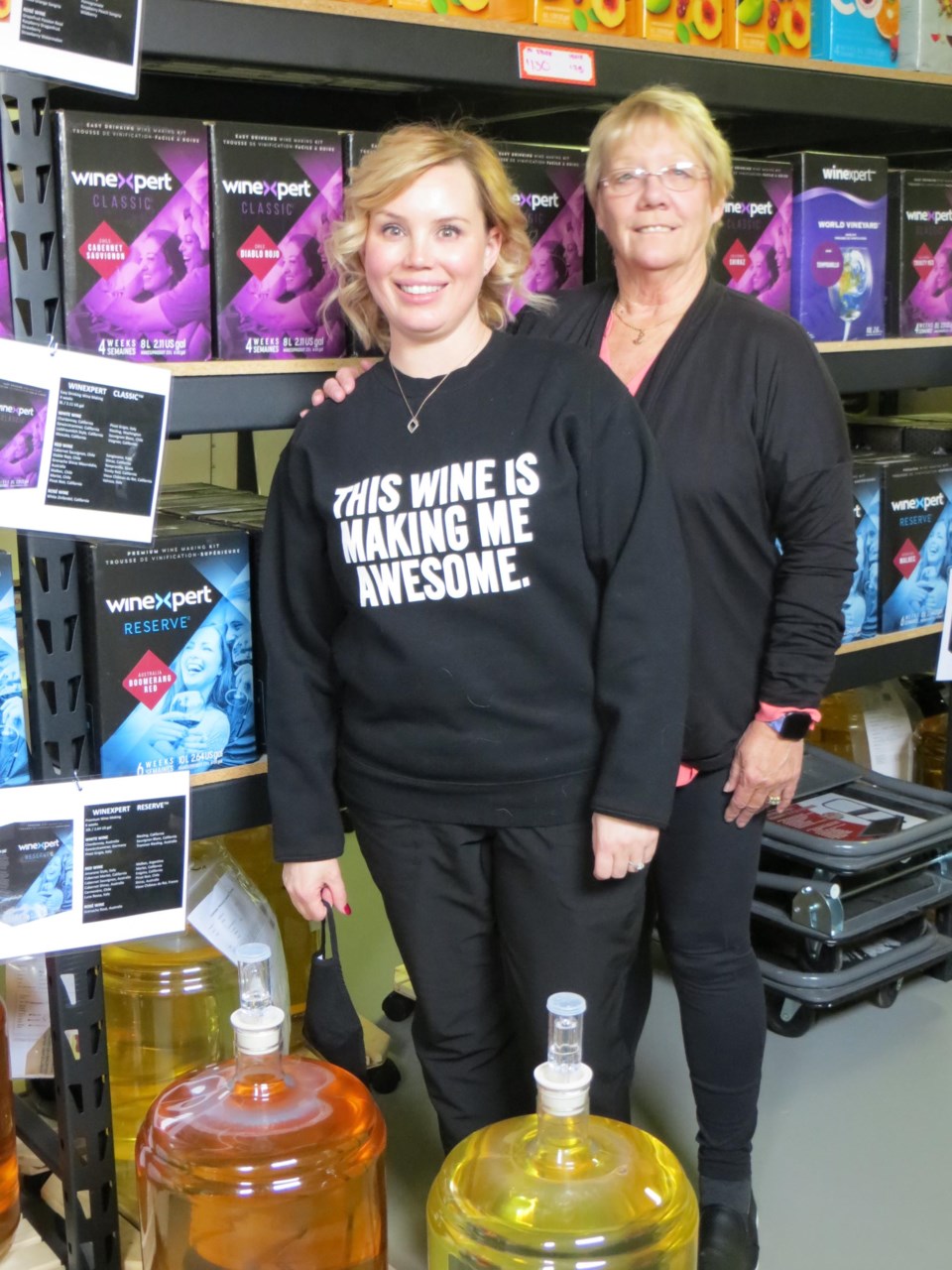Many business owners across Canada offering on-site wine brewing were forced to cease operations during COVID-19. Instead, Alberta deemed wine-makers an essential service.
Gypsy Moon Winery, the first of its kind in St. Albert, was permitted to stay open with distancing restrictions that included curbside pickup.
The winery sells wine kits exclusively for on-site brewing within its facility. Customers purchase a kit, craft their own wine, store it throughout fermentation and return to bottle it.
“When Michelle and I talked about it, we wanted people to enjoy the experience of bottling wine. We spend one hour with them and you get to know them. It’s about building relationships. It’s not about anyone walking through the door and buying a kit. It’s about them enjoying the experience and wanting to come back,” said Glenna French who is in partnership with daughter Michelle Bishop.
Fourteen on-site wineries in Alberta opened due to the Alberta Gaming, Liquor and Cannabis Commision’s updated Gaming, Liquor and Cannabis Act of Oct. 18, 2018. The new regulations permitted Class F licensees to “ferment on premises.”
Such licensees can now supply clients with ingredients, equipment and advice need to make beer, wine, cider or coolers on site. Once made and bottled, customers could remove the liquor for personal use.
Prior to the updated legislation, clients could purchase a kit but were required to make their wine at home. Bishop noted this posed a problem for different segments of society: people living in cramped condos with little room or seniors lacking the strength to lift heavy carboys would be unable to enjoy an inexpensive glass of wine.
“Anytime the government can change the law so entrepreneurial business can provide new services is good for the community,” said Jennifer McCurdy, outgoing president and CEO of the St. Albert and District Chamber of Commerce.
Kits typically make 30 bottles. Depending on the varietals and how long wine takes to ferment, a bottle costs one-third to one-half of retail purchases. Additionally, since a wine kit is considered food grade, there is no tax.
“You buy in bulk, you save,” said Bishop.
A self-funded business, Gypsy Moon Winery opened its doors on Nov. 1, 2019. It sells 75 different types of varietals along with five seasonal specialties. The kits are purchased from Global Vintners, a supplier owned by Peller Estates in Ontario.
French, who formerly operated a make-your-own-wine operation in Muskoka, Ontario, provides experience and know-how while Bishop works with new customers.
When clients first arrive they not only choose the wine, but also the colour, size and shape of bottles, custom labels and shrink top.
French and Bishop then pour wine in sterilized, 23-litre pails and add water.
“We pour the contents. But the customer has to pitch the yeast. It starts the conversion to alcohol. At that point, the customer has to pay for the wine. They now own the wine,” Bishop said.
An analogy to "ferment on premises" business is car repair: “You take the car to an automotive shop. They do the work, but you still own the car,” Bishop explains.
Once the yeast is mixed into wine ingredients, a lid is placed on the pail and it sits on a shelf for 14 days.
“You can personalize your wine. We can add more sugar or oak. We can fortify the wine. For instance, putting brandy in ice wine.”
On day 14, the mixture is tested to ensure the sugar has converted to alcohol. If alcohol conversion is complete, racking takes place. Racking is where the pail’s contents are emptied into plastic carboys and clearing agents are added.
“Clearing agents make sediment fall to the bottom. They stabilize the wine and kill the yeast.”
Once the wine reaches its peak, it is filtered through a commercial grade filter. It takes four minutes to filter one carboy through a 10-filter machine.
Customers then return to bottle their wine with cork stoppers.
“Wine needs to be corked because cork is what gives it its shelf life. Screw top works if you drink it tonight. You’re also transporting it, so you can’t have it readily accessible in the car,” explained French.
The Government of Canada website states our wine industry generated an impressive $7.5 billion during 2018/19. Interestingly, making massive amounts of money is less important to the mother-daughter duo than the people they encounter.
“You meet so many nice people. You make so many new business friends. You learn about their family, their business, the activities they’re in,” French said.
“There are stories beyond making wine and it’s fun being part of the story.”




